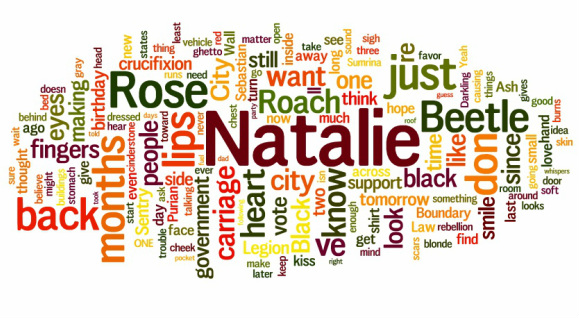This month's MM is about less being more. I am calling this post Volume One, because there is so much to say when it comes to less is more that I would turn this into a Twenty-Minute Masterclass if I said it all here. Plus, I am betting my colleagues have their own opinions about less being more, and I want to leave it open for them to expound on this idea.
Have you ever been to a play? You know how the actors project their voices and make big arm flourishes and dramatic gestures? Imagine if you took all that and put it in a TV show. That would be kind of campy and ridiculous, right? TV actors have to be much more subtle because the camera (and therefore the audience) is often only a foot away from them.
When you write, especially when you write in first person POV, think of the audience as being very close. What that means is that screaming and shouting and stamping of feet, etc., is all amplified. The same goes for exclamation points and emphasized italics. Too much of this reads like an email written in all caps, so you want to use these things in moderation. And in most cases, you don’t need to layer them on top of each other.
Consider the following example:
“I can ruin you, you know that?!” Kendall shouts at Micah. “I can make sure that no one ever speaks to you!” Her face contorts into a snarl.
“Stop it, Kendall! That’s enough!” I holler. I give her wrist another vicious yank. “Quit being a bitch!”
She looks at me in surprise, rubbing her wrist where I grabbed her. “No! It’s not enough!" she screams. "No friend of mine is—”
Of course! Once again Kendall is making my problems all about her! “This has nothing to do with you!” I shriek. This time she finally lets me drag her away.
“What has gotten into you!?” she hisses. “Did you really just call me a bitch? I was defending you since you seem incapable of doing it yourself.”
This is part of a climax scene, and it’s supposed to be full of emotion. But can you see how all of the shouting, snarling, shrieking, italics, and exclamation points make it feel over the top? Maybe you didn't mind, but can you imagine a whole book written like that? Some writers tend to do this so readers will definitely understand all the strong feelings that are present. But reading page after page of this gets exhausting, and it just serves to lessen the emotional impact of each additional snarl or shout. Instead, trust your reader. Think TV show, not stage play. If you are doing a good job of showing, you won’t need excessive formatting and dialogue tags.
Here’s the version that actually made it into the story.
“I can ruin you, you know that?” Kendall shouts at Micah. “I can make sure that no one ever speaks to you.”
“Stop it, Kendall. That’s enough!” I give her wrist another vicious yank. “Quit being a bitch.”
She looks at me in surprise, rubbing her wrist where I grabbed her. “No. It’s not enough. No friend of mine is—”
Of course. Once again Kendall is making my problems all about her. “This has nothing to do with you,” I say. This time she finally lets me drag her away.
“What has gotten into you?” she asks. “Did you really just call me a bitch? I was defending you since you seem incapable of doing it yourself.”
--from The Art of Lainey by Paula Stokes
Did I lose any emotional impact in Version 2? What do you think?

 RSS Feed
RSS Feed
